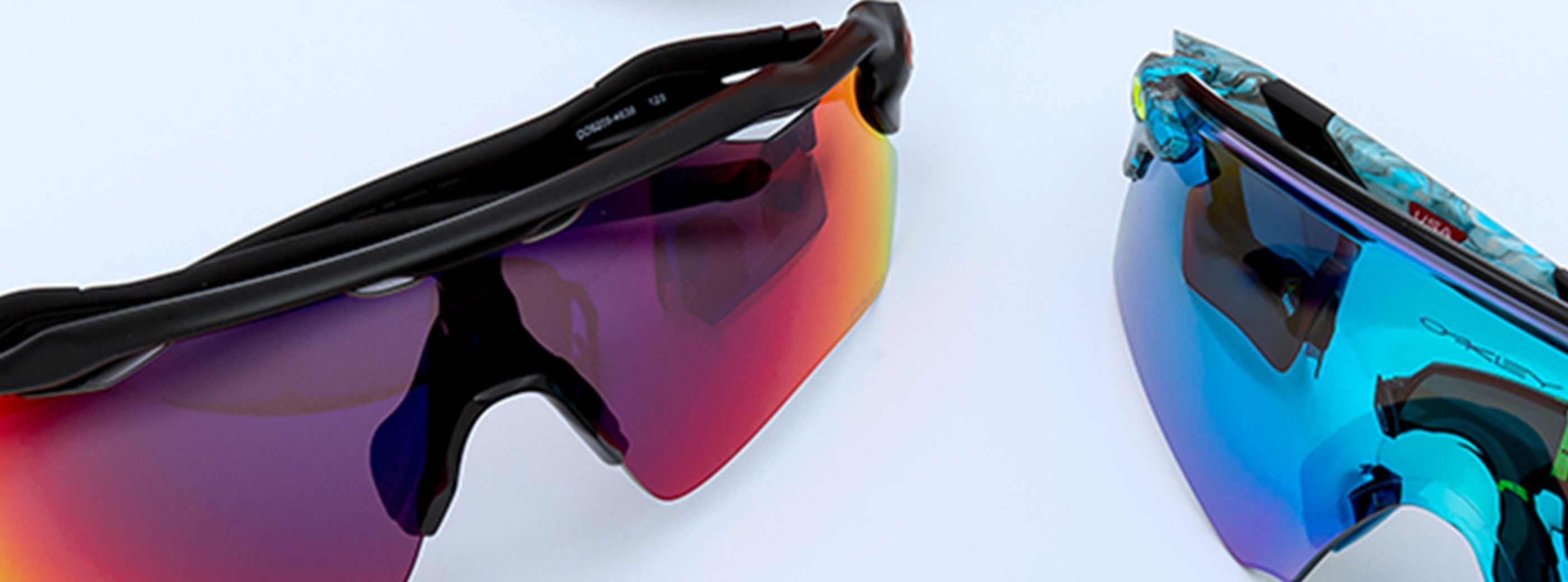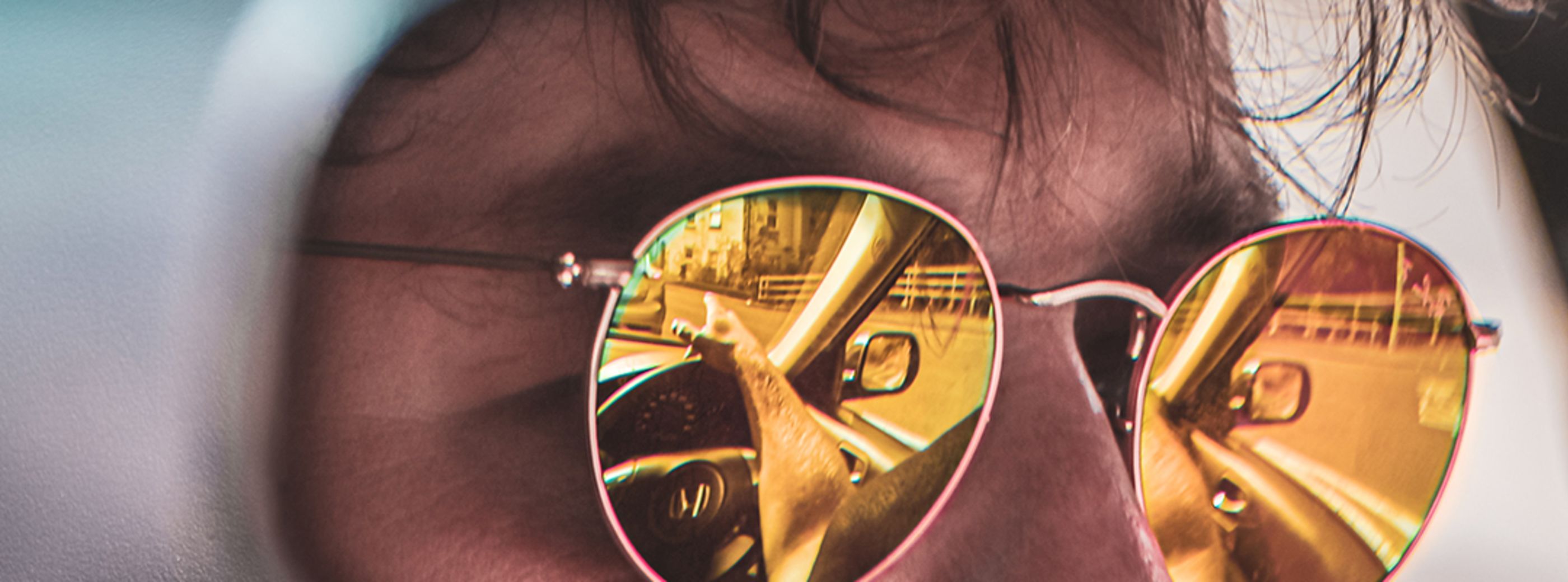Enjoy the view: prescription sunglasses
People tend to reach for sunglasses primarily in summer, when the sun unleashes its full force. Sunglasses don’t just protect the eyes from UV-radiation and glare: they are also a cool fashion accessory that are an integral part of many people’s outfits. However, sunglasses also have their use in winter, as the eyes still require protection.
People who wear prescription glasses often feel that sunglasses aren’t really an option for them and so go without. Such thinking is a little too hasty. Prescription sunglasses are a perfect example of how to blend the fashionable with the practical.
The protective function of sunglasses
Sunglasses fulfil various functions. For one thing, they make it easier to see on sunny days and stop the sun from dazzling your eyes. The darker the lens, the better the protection from glare.
Tip: All sunglasses at Mister Spex have UV-400 protection.
What many people don’t realise is that sunglasses don’t just protect your eyes under a bright blue sky. The rays of the sun also penetrate into shaded areas. Nor should you underestimate reflections off water, sandy beaches or snow. The right lenses provide protection in all these situations.
Glazed sunglasses - the smart choice for glasses wearers
For glasses wearers, glazed sunglasses - also known as prescription sunglasses - represent a smart option. The big benefit is the combination of protection of the eyes and correction of your vision: the glasses help you see clearly in the sunshine while also protecting the eyes from glare and UV-rays.
Another advantage of sunglasses is for trips to the beach. Contact lens wearers sometimes have to struggle with wind and sand, which can cause dry, burning eyes. Sunglasses are a smart alternative in this case, as with the right size frame and lenses they can protect from both wind and grains of sand.
Likewise, contact lenses are best avoided while swimming. If water gets into the eyes, microorganisms can get under the lens surface and lead to dangerous infections. So for swimming that isn’t too intensive, prescription glasses also represent a good alternative. What’s more, they offer essential protection against the dazzling effect when sunlight reflects off the surface of the water.
Tip: If you aren’t a fan of contact lenses but don’t want to deal with more than one pair of glasses, a model with self-tinting, or photochromic, lenses is a good choice. Such glasses adjust to changing light conditions and temperature by getting either lighter or darker.
What to look out for when buying glazed sunglasses
The sunglasses should have certified UV-protection. UV protection 400, for example, means that ultraviolet rays with a wavelength of up to 400 nanometres are absorbed by the lenses.
The filter category, which is related to how dark the lenses are, should be suitable for the region in which the glasses will be worn. Sunglasses from Mister Spex shield the eyes from about 85% of sunlight, which is ideal for the UK climate or holidays a little further south.
The CE label on the inner side of the temples is a sign that the glasses meet European standards. However, as this label can be easily faked, it’s important to buy your sunglasses from a reputable outlet.
If you require higher corrective values, we’d recommend a model with a sturdy frame. Slender rims or rimless models are less suitable.
You should also give thought to the weight of the frame. If the frame is already quite heavy prior to glazing, the weight will increase further with the lenses. So for prescription sunglasses a lighter frame is generally the way to go.
Not all sunglasses can be glazed. The lenses can’t be too big nor the frame too curved, and the material also has to be suitable for glazing.
You don’t have to worry about the last two points if you go for the combination of contact lenses and regular, non-prescription sunglasses. Beach visits aside, this combination especially makes sense for those who don’t want the hassle of always carrying two pairs of glasses around with them. While glazed sunglasses will ensure that you have good vision in summer, they have to be swapped for your regular glasses every time you go into an enclosed space.
Tip: At Mister Spex you can order glazed sunglasses with brown, grey or green lenses. We also offer true to original glazing for many models, which means that the lenses are the same colour as the lenses of the original, non-prescription sunglasses.
Summary: Are glazed sunglasses the right option for you?
Whether prescription sunglasses make sense for you really depends on your needs. Ask yourself what are the realistic alternatives and whether, for example, the combination of contacts with normal sunglasses would work. However, prescription sunglasses do have serious benefits, most notably the combination of correcting vision and protecting the eyes. They are also a very practical option for those who either can’t or don’t want to wear contact lenses. You also shouldn’t neglect the fact that protection for the eyes is important in winter or overcast weather as well, in order to minimise the risk of long-term damage.








